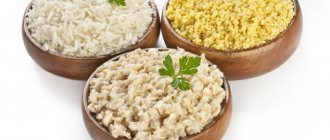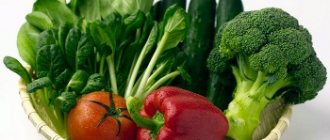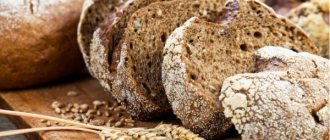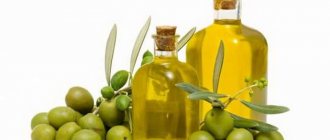The nutritional value of dried fruits is unusually high.
If the drying technology is followed, the valuable components in apples, pears, plums, and grapes are not only preserved, the amount of some even increases. Dried fruits have immunostimulating properties, are good for the heart and blood vessels, and restore a weakened body after a long illness. In cooking, dried fruits are used to prepare compotes, various desserts, and salads. For gastritis, dried fruits in their natural form are not consumed, let’s figure out why.
What experts say: is it possible or not?
Nutritionists recognize the benefits of dried fruits only if they are properly prepared. During the industrial drying process, some technological tricks are used that are not always useful for humans. Some manufacturers pre-soak the fruit in a hot soda solution - the skin becomes thin and weak, and the subsequent drying process is accelerated. Valuable elements perish ingloriously in a hot solution; you will not get any benefit from such a product.
Some production facilities still use wood-burning ovens to dry fruits and vegetables. Not only firewood is used as fuel, but also raw materials that are not at all environmentally friendly - garbage, rubber, even gasoline. It is clear that such products can be harmful to health.
The next stage is presentation. Another production trick is the use of chemical dyes. The appearance of natural dried fruit is unattractive and pale, but if the raw material is treated with dyes, the product takes on a very appetizing appearance.
Important! You can only eat dried fruits that have been dried in air or in the oven with your own hands. Then you can be confident in their safety and benefits.
The average calorie content of the product ranges from 230 to 360 kcal per 100 grams.
Justifying the ban
Doctors do not recommend consuming dried fruits for gastritis due to the following reasons:
- Without exception, all dried fruits have a hard fibrous structure; in order to digest them, the stomach requires a large amount of gastric juice. Most known dried fruits increase acidity.
- Due to their hard and tough structure, dried fruits can injure a sore stomach. It is especially dangerous to consume the whole product with erosive and atrophic gastritis.
- The traumatic property of dried fruits also manifests itself in gastritis with unchanged and low acidity. Coarse fibers can cause inflammation of the mucous membrane.
Alternative options
For normoacid and hypoacid gastritis, you can prepare compote or jelly from a mixture of dried fruits. Pears, apples, plums, and prunes must be removed from the drink after preparation. In small quantities, you can consume dried fruits pre-soaked in water and chopped.
For hyperacid and erosive gastritis, compotes and jelly are prepared only from dried pears and quinces. Other types of raw materials increase acidity.
Authoritative opinion. We are impressed by the opinion of nutritionist, Doctor of Science of the Russian Academy of Natural Sciences, Professor A.V. Kovalkov, who sees no point in consuming “fruit mummies” in large quantities just because today fruits and vegetables can be purchased fresh at any time of the year. The doctor also draws attention to the high content of light carbohydrates in the product. If you use them often, you will inevitably gain excess weight.
Now let’s look at each type “by name”. Let's start with the most common and familiar ones.
About the use of dried fruits for gastrointestinal diseases
To begin with, you must remember that dried fruits in their pure form are strictly contraindicated in case of exacerbations of diseases of the stomach and pancreas. If you have a hypoacid form of gastritis, then dried fruits are also prohibited.
Many patients prefer to use dried fruit compote for gastritis. But there is a small limitation here - it is recommended to drink it only in a state of remission. If you are experiencing an exacerbation phase, you should consult your doctor.
The medicinal properties of compote depend on what fruit is at its base. To reduce the acidity of gastric juice, for example, you need to add quince and pears.
Also, drinking dried fruit compote for gastritis is useful for the hypoacid type of the disease. The drink has a slight astringent effect, which has a positive effect on gastritis with high acidity. Before consuming the drink internally, it must be cooled.
It is noteworthy that dried fruit compote is allowed to be drunk by pregnant women at any stage. But only if you are not allergic to any of the components.
As you know, if you have stomach diseases, you should eat only crushed food. Therefore, you can make a nutritious and, at the same time, healthy mixture from dried fruits such as dried apricots, prunes and raisins. To do this, take approximately 15 g of each product and grind them in a meat grinder or blender. Such an impromptu dessert will not harm your health and well-being.
What is the daily allowable intake of dried fruits for stomach diseases? And what do experts think about this? All this remains to be learned for people with diagnoses such as gastritis or ulcers.
Apples
The calorie content of the product is 231 kcal/100 grams.
The vitamin and mineral concentration in dry apples is higher than in fresh ones. They contain vitamins B, C, PP, and beta-carotene. Dry apples are rich in potassium and phosphorus, they contain iron, calcium, and antioxidants.
The product contains coarse dietary fiber, pectin, and fiber. Useful for atherosclerosis, heart disease, and exhaustion. For gastritis, it is used to prepare various dishes. Use only after heat treatment is permissible.
Action of dried apricots
If you eat dried apricots every day, without exceeding the norm, then it will be useful. Regular consumption of this dried fruit improves:
- Work of the heart and blood vessels. Those suffering from heart disease receive potassium and magnesium necessary for the heart muscle.
- State of the digestive system. Dried apricot is recommended for constipation. In case of such a problem, 5 dried fruits should be washed, brewed with boiling water overnight, and in the morning, eat the fruits and drink the infusion. This treatment restores intestinal function within a month.
- Kidney function. An infusion of dried apricots removes excess fluid from the body, but compared to diuretics it does not deprive it of valuable components.
- Vision. Carotene in dried apricots is useful for ophthalmic ailments.
Dried apricots serve as cancer prevention. The microelements they contain improve the body's resistance and prevent cancer cells from developing. This product increases the number of blood cells, so it is recommended for those with low hemoglobin. The healing effect of dried apricot increases if consumed with other dried fruits.
Pears
Indicated for cooking dishes with high acidity, but are used only after preliminary soaking or heat treatment. Dry pears contain almost no organic acids, but they contain pectins and tannins that protect the mucous membrane. The vitamin and mineral composition of dried fruit is similar to that of fresh fruit. Dry pear has mild diuretic and fixative properties, it has an antipyretic and antitussive effect. The calorie content of the product is 246 kcal per 100 grams.
What dried fruits are still allowed?
In addition to dried apricots, you can include raisins in your diet, which allows you to get rid of painful sensations and irritations that occur in patients with gastritis. Raisins contain proteins, fiber, and vitamins. The acid contained in the composition stops the proliferation of some bacteria. But the product sold in stores and markets is contaminated. Such raisins can cause irritation of the mucous membranes. To prevent this, dried fruits need to be washed and filled with kefir.
For gastritis, dates are recommended to be added to salads, decoctions, and baked goods, if permitted by a doctor. If you consume them in dry form, then it is advisable to eat no more than 50 g 15 minutes before meals. After about a month, the person feels improved health.
Figs are useful for gastritis, as they contain many vitamins and microelements. The fruits are rich in properties, so they are used to treat various diseases of the digestive system. These dried fruits contain fiber, which is needed to remove toxins and other harmful components from the body. With regular consumption of fruits, a person’s digestive system is restored.
It is recommended to consume prunes for gastritis only during the period of remission. The product improves immunity. 30 g of this tasty and healthy dried fruit is considered the norm per day. But if the measure is exceeded, stomach pain and heartburn may appear.
Figs
The beneficial properties of figs are due to their high potassium content, so they are recommended to be included in the menu of cardiac patients.
Figs also contain iron, sodium, magnesium and calcium, but in smaller quantities. Rich in B vitamins, contains vitamin A and antioxidants.
It has pronounced laxative properties, which is important for constipation and intestinal diseases. Figs are endowed with antitumor and antitussive properties; they are actively recommended for the prevention of eye diseases and improvement of vision. For gastritis, it is used only after heat treatment.
Important! Before drying the figs, they are dipped in thick sugar syrup. Therefore, figs are not recommended for overweight and diabetic patients.
Calorie content of the product is 256 kcal / 100 grams.
Dates
Palm fruits surpass even figs in magnesium and potassium content, so cardiologists actively recommend them to their patients. It has been proven that when eating 7-10 dates daily, the risk of strokes and heart attacks is several times higher. The vitamin and mineral composition of dates is very convincing; they contain vitamins C, A, PP, B 1, B 2, B 5, B 6, and the number of microelements is truly record-breaking. Dates contain:
- Calcium;
- Chlorine;
- Sulfur;
- Zinc;
- iodine;
- selenium;
- copper;
- vanadium;
- phosphorus;
- manganese;
- iron;
- sodium;
- titanium;
- chromium;
- nickel;
- selenium;
- boron;
- fluorine and others.
Dates strengthen defenses, remove harmful substances, reduce cholesterol, improve potency, and strengthen the muscle layer of the uterus. Dates have a beneficial effect on digestion, but are not recommended for gastritis in their natural form due to the hard structure of the outer skin. Consumption in desserts is permissible for gastritis only after heat treatment.
The calorie content of one berry is 23 kcal; 100 grams of the product contains 257 kcal. High calorie content is a limitation for the consumption of dates by overweight patients.
Prunes
If you choose between fresh and dried plums, choose fresh fruits.
Despite their high nutritional qualities, prunes are considered heavy food for the stomach, so dried fruits in their natural form should not be consumed if you have gastritis. Prunes are recommended for diseases of blood vessels, heart muscle, and cancer. It has a pronounced laxative and mild diuretic property. Prunes contain vitamins B, A, E, PP, K, C, which are important for hematopoiesis and the fight against free radicals.
Dried fruit for diseases of the liver and gall bladder. Zinc, iron, magnesium, potassium and calcium have a positive effect on brain activity and nerve conduction. Contains organic acids, pectin, fiber. For gastritis, it is recommended only in crushed form after preliminary soaking or heat treatment.
Calorie content is 231 kcal per 100 grams of product.
Dried apricots for gastritis: properties of dried fruit and its use
In the chronic form of gastritis, patients experience an inflammatory process on the mucous membrane. After the examination, patients are prescribed medications and follow a strict diet. From your daily diet you need to exclude foods that contribute to irritation of the stomach walls. Many people would like to know whether dried apricots are allowed for gastritis, as well as other dried fruits.
Dried apricots are useful products for the gastrointestinal tract
When are dried apricots useful?
Important! When a patient develops gastritis, it is necessary to promptly treat the pathology and prevent further damage to the walls of the stomach.
The body must be provided with all the necessary nutrients. With such a disease, only certain foods are allowed to be consumed.
Gastritis means pathology of the stomach. It develops as a result of frequent stressful situations and poor nutrition. Diet is the main principle of successful therapy. Dried apricots are obtained after proper drying of fresh apricots, from which the pit is first removed.
The composition contains components that have a positive effect on digestion. Dried apricots help eliminate toxic substances. This dried fruit is an excellent substitute for confectionery and other sweets. Doctors recommend it for people with excessive body weight.
This is a great alternative to sweets
Contraindications to the use of dried apricot
Advice! To study the question of whether dried apricots can be used for gastrointestinal pathologies, you need to familiarize yourself with the contraindications.
It is not used in the following conditions:
- Serious nutritional disorders in the gastrointestinal tract. Dried apricots are prohibited for consumption by people with high acidity. If this rule is not followed, sharp pain in the abdominal area, diarrhea and excessive gas formation may occur.
- When a product is not dried correctly, it is of poor quality, then its use should be discarded. The store sells dried fruit that is processed using chemicals. Visually, such a product becomes beautiful and appetizing. When dried apricots have a bright orange hue, they have been treated with anhydrine. If it gets into the stomach, poisoning occurs. To treat gastritis and other gastrointestinal pathologies, you need to dry apricots yourself.
- During the acute period, dried fruits should be excluded. They provoke aggravation of the situation.
It is important to remember that apricots are strictly forbidden to be consumed on an empty stomach. They contain natural acid, which causes irritation of the mucous membrane. You must follow all the recommendations of your doctor and do not exceed the prescribed dosage.
You need to know how to choose the right dried apricots
Eating dried fruits for gastritis
When a patient develops gastritis, it is necessary to exclude harmful foods, fast food. Doctors allow the consumption of various dried fruits. These can be dates for chronic gastritis, raisins, prunes.
Dried fruit compote for gastritis
Important! In case of inflammation, food must be crushed until smooth.
Dried fruits in their raw form can provoke an exacerbation. They must be thoroughly crushed before use.
Patients need to prepare compotes, because such a drink will not cause injury to the inflamed stomach walls. If you follow the recipe, it will be useful.
Compote can be drunk at different periods of pathology development. It does not injure damaged stomach walls. Many people have already appreciated the beneficial properties of this dish, which is easy to prepare. It can be drunk not only by adults, but also by children of different ages, if there is no allergy to certain fruits.
Compote recipes and cooking options
Nutritionists recommend preparing compotes based on apples, pears, and cherries. You can use prunes for chronic gastritis. Other permitted fruits that stabilize the acidity level can be added as desired. The main method of food processing is cooking. Sometimes doctors recommend infusing them in hot water.
If you follow a diet that is aimed at restoring the functioning of the stomach, then you need to carefully choose drinks. Below are proven methods for cooking compotes.
Plum and cherry compote
This drink is indicated for people who have low stomach acidity. Cherries go well with sea buckthorn. Dried or fresh fruits should be thoroughly washed in cold water and soaked.
Next, they are poured into a container and cooked for 15 minutes. Sugar can be added to patients if there are no restrictions or contraindications.
Plum compote is a storehouse of useful components
Compote of pears and apples
When a low level of secretion is diagnosed in the stomach, you need to drink this healthy compote regularly. These fruits have a positive effect on the functioning of the internal organs of the gastrointestinal tract.
Dried fruits need to be filled with water, brought to a boil, and cooked for 30 minutes until tender. When the broth is ready, you can strain it.
Advice! To improve the taste, it is allowed to add honey.
Apricot compote
Apricot helps the digestive system. It is not too acidic, so it has a negative effect on the mucous membrane. Apricots pair well with pears, which add a slight sweetness. If the broth turns out sour, then you can add honey.
Sugar is not allowed to be added to people who have been diagnosed with an ulcer or acute gastritis. It can cause fermentation in the stomach.
This drink can perfectly replace the third course in the diet. Breakfasts and oatmeal are often prepared from it.
This compote helps well with various forms of gastritis
Porridge cooked with compote
Before preparing porridge, dry fruits must be thoroughly soaked. Next, take a pan, add water, and bring to a boil.
Then add chopped fruit and boil for another 10 minutes. When the broth is prepared, you need to add oatmeal and mix it thoroughly. After 5 minutes you can add a little sugar. You need to boil the porridge until the water boils away.
Healthy dried fruits
As statistics show, the period of exacerbation occurs seasonally. Often patients experience the first symptoms during the period of colds and flu. The body's immunity and defenses are greatly reduced.
It is for this reason that you need to prepare fruits in the summer in order to prepare compotes and other healthy drinks in winter. Decoctions help saturate the body with all the necessary vitamins. They prevent the development of vitamin deficiency in adults and children.
Important! Compote and other drinks can be used for various diseases.
You need to use only natural fruits that are properly processed and dried. If you drink a glass of compote in autumn or winter, you can help the body. All the vitamins contained in the composition will be an excellent prevention of flu and colds.
Before drawing up a therapeutic diet, you need to familiarize yourself with information and useful tips on whether you can eat raisins and figs for gastritis.
about dried fruits for gastritis and their benefits for the body:
-a lesson on how to choose the right dried apricots:
Source: https://LechiGemor.ru/gastrit/mery-profilaktiki/7621-kuragi-pri-gastrite.html
Raisin
A distinctive property of dried grapes is the ability to increase the amount of minerals and vitamins in their composition. Raisins are recommended for heart disease; raisin compote restores strength well; it is recommended for exhaustion. Raisins calm the nervous system and are indicated for increased excitability and insomnia. It has a pronounced antioxidant effect and has an antimicrobial effect. Calorie content of 100 grams of raisins is 264 kcal.
If you have gastritis, you should not use it in its natural form. If the dry product is pre-soaked for an hour, it can be eaten even with hyperacid gastritis, but in limited quantities - 50 grams as a dessert after the main meal. It is allowed to add soaked raisins to cottage cheese, yogurt and desserts, as well as at the end of cooking when preparing porridge.
Dried fruits for gastritis
Dried fruits are considered a healthy product, but in case of hyperacid gastritis, doctors do not recommend using this product because of its ability to increase hydrochloric acid production. It’s just that dried fruits are rough foods that can damage inflamed mucous membranes, and in case of high acidity, it is recommended to eat pureed or crushed food. Even people with a healthy stomach take a long time to digest dried fruits, and in the presence of gastritis, serious problems will arise with digestion.
Dried fruits, when consumed regularly, help strengthen the immune system and heart, and help stabilize blood pressure. These products help alleviate and even prevent colds and acute respiratory viral infections, as they provide the body with vitamin reserves and fiber. Moreover, regular snacks of dried fruits significantly reduce the risk of developing seasonal depression.
Dry dates can be eaten for gastritis about a quarter of an hour before meals.
Dates for gastritis
To prevent dates from causing an exacerbation of gastritis, you need to eat them in the form of additives to various dishes, drinks, salads or baked goods. Dry dates can be eaten for gastritis about a quarter of an hour before meals. In this case, the amount of product should not exceed 50 g.
Sometimes doctors prohibit eating dates with the peel on. For better absorption and easier digestion, the product should be eaten purified in an amount of 20-30 g per day. It is also recommended to add dates to the mixture for making compote.
Prunes for gastritis
Gastritis sufferers can also eat prunes exclusively during the recovery stage. During exacerbations, this product is contraindicated. In case of hyperacid inflammation, no more than 30 g of prunes are allowed per day.
Dried apricots for gastritis
Dried apricots are also contraindicated for acute gastritis. Dried apricots contain a lot of manganese, iron, and potassium, which is why it has high allergenicity rates. If you eat dried apricots during remission and in the absence of hypersensitivity to it, then it will help the body cleanse itself of toxins and toxic components. Dried apricots can be eaten only in limited quantities to prevent complications.
Dried apricots for gastritis can be eaten only in limited quantities to prevent complications
If you have gastritis, you can eat 3 dried apricots. per day, no more. The fact is that dried apricots can provoke a serious aggravation of inflammation of the gastric mucosa. And if the dried fruit is also treated with acids or spoiled, then its consumption is fraught with gastrointestinal upset or acute inflammation with intoxication. The safest way to consume dried apricots for gastritis sufferers is to prepare compote.
Figs for gastritis
When consuming figs for hyperacid gastritis, the normal functioning of the digestive system is restored in patients. The most pronounced beneficial effect of consuming figs is observed when patients eat the product before meals.
Figs can be consumed either dry or added to mixtures for making compote. For gastritis sufferers, it is enough to eat 4 figs per day for medicinal purposes. Abuse is unacceptable, otherwise there is a high probability of developing allergic reactions and flatulence.
Raisins for gastritis
Dried raisins have a calming effect on the gastrointestinal tract, relieving pain and irritation.
If you have gastritis, you can eat raisins, you just need to follow some rules:
- the berries must be thoroughly washed with warm water and then scalded with boiling water;
- You can’t eat raisins on an empty stomach, because when the mucous membranes are hyperacid, they intensify gastritis processes;
- it is better to buy a product made from seedless grapes to prevent hard seeds from getting into the inflamed stomach;
- in case of hyperacid gastric environment, dried grapes can be added to porridges, compotes or herbal decoctions.
If these rules are followed, there will be no harm to patients from raisins.
Dried apricots
Dried apricots are prized for their high potassium content.
In addition to this element, they contain magnesium and calcium, zinc and sodium, and a wide range of vitamins. Dried apricots stimulate digestion, have an antioxidant effect, restore strength, and cleanse the liver. The calorie content of the product is 231 kcal per 100 grams.
For gastritis of any form, dried apricots in their natural form are not recommended. Allowed after heat treatment and soaking, as part of other dishes.
Contraindications to the use of dried apricot
- The product is not recommended for use by people with serious stomach disorders or intestinal dysfunction. There is no need to take dried apricots for gastritis with high acidity and ulcers. In large quantities it causes abdominal pain, bloating and diarrhea.
- If the product is processed poorly, it is better to refrain from consuming it. Store-bought dried apricots are treated with chemicals that make the product visually attractive. If a dried apricot is unnaturally orange, the fruit may have been treated with a special toxic substance - anhydride. If the substance enters the body, it causes poisoning. It is recommended to dry the apricot yourself.
- If gastritis worsens, it is better to avoid the product.
- You should not eat apricots on an empty stomach; the acid in the product provokes an aggravation. When diagnosed, it is recommended to eat up to three pieces of dried fruit per day.
How to dry fruit properly
You need to dry the fruit yourself. Only because you cannot be sure of the quality of dried fruits sold on the market. Let's tell you just about one trick of unscrupulous sellers - if you pour several bottles of sweet water or lemonade into a container with dried fruits, the dried fruits gain weight and take on a more attractive appearance. Remember this.
The best solution is to purchase an electric dryer for fruits and vegetables and use it according to the instructions. If you decide to dry fruit in the oven, the temperature should not exceed 50 - 55 degrees. The third, healthiest and vitamin-preserving option is air drying in the shade. True, this process takes 7–8 days. This is how our ancestors dried fruits and vegetables.
Cooking the “correct” compote
To prepare a healthy drink, use a glass of dried fruit mixture for every 2 liters of water. Place pears and apples into the compote first, after 20 minutes all other dried fruits. In order for the compote to have beneficial properties, you need to prepare it as described below.
Cooking technology
- Wash dried fruits thoroughly and soak for 30 minutes in cold water, let them swell a little.
- Boil water with sugar.
- If you use sweet dried fruits, you don’t need to add sugar.
- Place dried fruits in boiling sweet water and after boiling, reduce the heat.
- Cook for 30 minutes.
- After preparing the compote, cool well and remove the boiled dried fruits.
If you have gastritis, drink the compote warm; hot and cold drinks can cause inflammation.
How to properly consume dried fruits for gastritis
Dried fruits are very tasty, healthy and nutritious, so many gastritis sufferers try to break or circumvent the strict ban. Indeed, in some cases, with gastritis, you can eat prunes, figs, adhering to certain rules. One of these conditions, for example, is low acidity, a chronic form of the disease. Atrophic gastritis and winter vitamin deficiency may also be an indication for inclusion in the diet.
How to use dried apricots and prunes correctly for gastritis
It is not for nothing that these products are combined into one group, because they have similar properties. For gastritis with increased acidity, it is better to avoid dried plums and apricots altogether. In other cases, it is allowed to make puree.
For gastritis with increased acidity, it is better to avoid dried plums and apricots altogether
To do this, you need to boil the dry fruits until soft (this will take 30-40 minutes). After which, drain the broth and grind the resulting mass until smooth.
How to use raisins correctly for gastritis
Raisins are added to many dishes, so it is difficult for gastritis sufferers to completely give up dry grapes. This product is definitely prohibited in case of high acidity. But people who want to improve acid secretion can consume 15-20 grams of raisins per week. In addition, raisins have antiseptic properties, which means they can negatively affect the bacteria H. Pillora. To enhance the antiseptic effect, you can eat raisins sprinkled with cinnamon.
How to use fig correctly for gastritis
Figs (the second name for figs) can be consumed for gastritis with low acidity, complicated by frequent constipation. Figs are a real record holder among other dried fruits in terms of dietary fiber content. But due to the presence of a large number of small and sharp seeds, figs are prohibited in the presence of erosions and ulcers.











